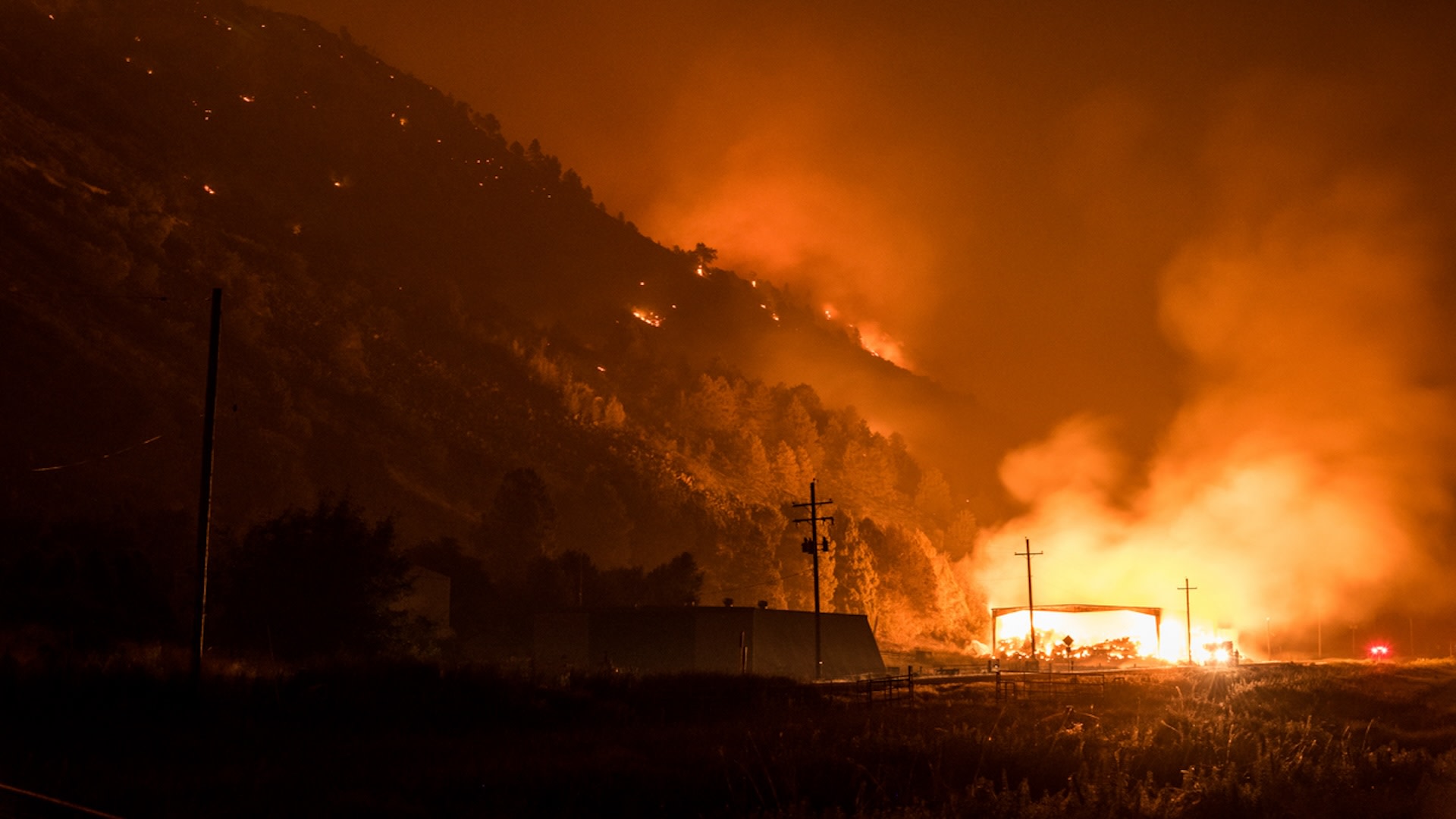Rising global temperatures are creating and exacerbating extreme weather hazards around the world, and one U.S. state is feeling the effects.
What's happening?
Oregon is faltering under the weight of wildfires that are draining state resources and stretching ranchers, as well as dividing lawmakers, Stateline.org reported.
The Durkee Fire earlier this year burned 294,265 acres, sparked by a lightning strike two weeks before fire season. By the end of September, a state-record 1.9 million acres had gone up in flames. Spurred by hotter summers and combustible invasive grasses, wildfires are growing beyond officials' ability to handle them.
"The 2024 fire season highlights the reality that's before us: The wildfire season is getting longer with larger fires burning for more time," Oregon State Fire Marshal spokesperson Kassie Keller told Stateline. "This is not news to the fire service, but this season did help make more people aware of our new fire reality."
Because of other fires in the Pacific Northwest and across the country, firefighters from Virginia who were inexperienced with range fires were the only available reinforcements.
The Beaver State has spent $250 million on wildfires this year — its budget was around $100 million — the Oregon Capital Chronicle reported. Officials are unsure how to proceed, with Democratic state Sen. Jeff Golden wanting to reinstate a tax on the timber industry to support wildfire response and Republicans calling on state agencies to better manage forests.
Oregon Department of Forestry spokesperson Joy Krawczyk told Stateline that funding to deal with the wildfires "has never been more urgent."
Why is this important?
Wildfires burn significantly more land than they used to in Oregon — with the average yearly acreage doubling each decade since the 1990s, according to Stateline.
The state is not alone, as drought, wildfires, and other extreme weather events, including heavy rainfall, are becoming more frequent and severe because of the overheating of the planet. Even the famously wet Amazon is suffering from growing fire risk.
🗣️ Do you think our power grid needs to be upgraded?
🔘 Definitely 👍
🔘 Only in some states ☝️
🔘 Not really 👎
🔘 I'm not sure 🤷
🗳️ Click your choice to see results and speak your mind
In rural Eastern Oregon, which is not usually prone to wildfires, buildings and structures are few and far between. But cattle, the state's second-leading agricultural product, lost grazing areas, and ranchers will need to relocate the animals and find new pasture, per Stateline. Across the state, 60% of what burned in the summer was grassland or shrubland.
One rancher couldn't renew the insurance he had held on his cows for 15 years, and hay prices are already up. Fences, watering troughs, and outbuildings need to be rebuilt; downed trees tended; and grass reseeded.
"All of the economic issues are magnified," rancher and volunteer fire captain Bert Siddoway told Stateline.
What's being done about wildfire risk?
It's essential to reduce our consumption of dirty fuels to help cool the planet. The burning of coal, gas, and oil is spewing toxic gases into the atmosphere that trap heat and harm our health and livelihoods as well as the well-being of Earth.
You can be a change-maker (and save money in the long term) by using less plastic, changing your transportation habits, and upgrading your home energy systems.
Join our free newsletter for good news and useful tips, and don't miss this cool list of easy ways to help yourself while helping the planet.









